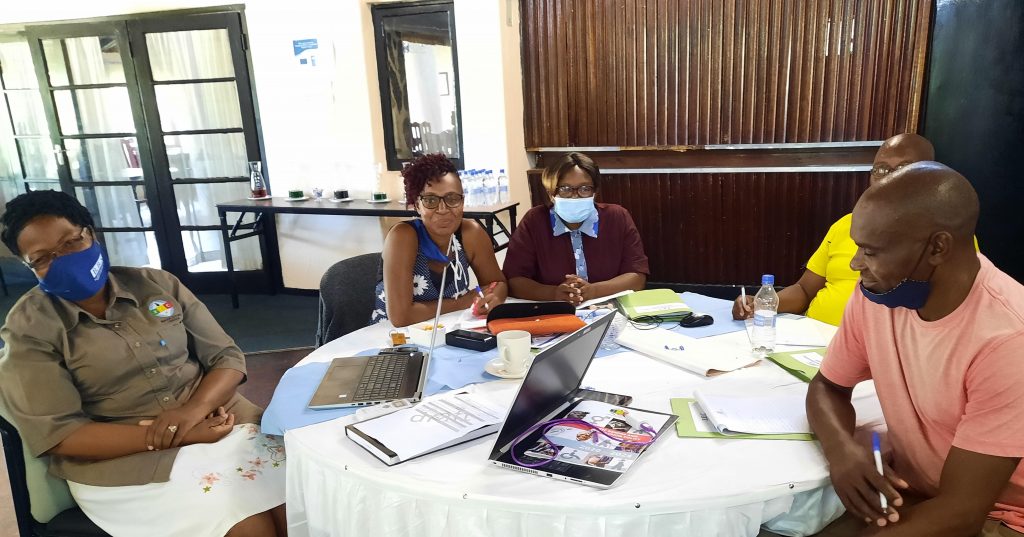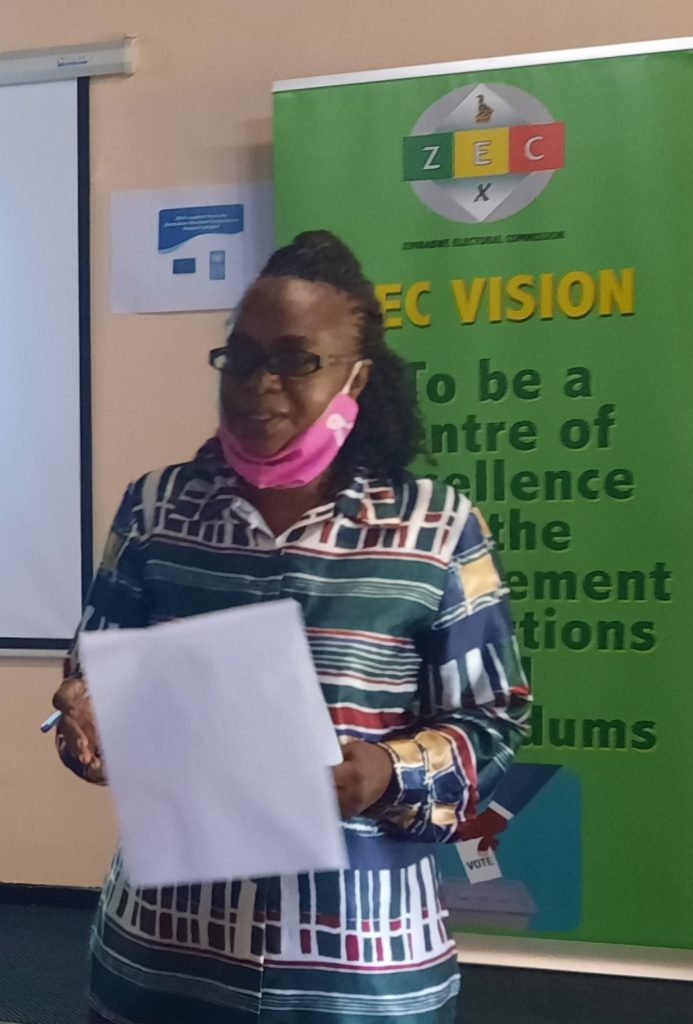It might just as well be a moon-shot: The challenges that women face for political participation in Zimbabwe are enormous. The Zimbabwe Electoral Commission (ZEC) is committed to tackling them and took an important step to do just that in November.
Just how disadvantaged women are in this field became clear in the Gender Equality Baseline Survey that ZEC conducted in 2017 with technical assistance from the UN Women through the UNDP ZIM-ECO project that is supported by the European Union:
More than half of the women surveyed had ‘never heard’ of the Zimbabwe Electoral Commission and that 58% of respondents cited violence as one of the primary reasons for not participating in elections as voters or as candidates. Unequal access to information was cited as another barrier to full participation in elections, and women and persons with disabilities in particular are four times as likely to be assisted voters indicating challenges in terms of voter education. A post-election survey also revealed the prevalence of gender discrimination and societal and religious stereotypes as major barriers for women’s equal participation in elections as voters and candidates. The survey provided key recommendations to address these challenges, such as an increased collaboration with the Zimbabwe Gender Commission to address gender stereotypes and the Zimbabwe Republic Police to combat violence against women in elections. The findings of these critical studies informed the Gender and Inclusion Policy.
The Gender and Inclusion Policy ensures that the needs of women, men, youth, the elderly, persons with disabilities and other groups are fully taken into consideration during the conduct of the Commission’s duties. The policy seeks to enhance the representation and participation of women, youth and persons with disabilities in electoral processes, in Parliament, Local Authorities and in all electoral activities. Additionally, this policy enables the Commission to meet its obligations to the Constitution particularly constitutional provisions on gender equality and regional and international protocols through an implementation plan addressing the particular needs of different societal groups.

From 27 to 29 November ZEC therefore brought together Gender Focal Persons from the ten provinces of Zimbabwe, the ZEC Head office, and ZEC facilitators that had recently taken part in an Online BRIDGE workshop on gender equality and elections organized by the UNDP regional office in Addis Ababa. With support from UN Women through the ZIM-ECO project, they familiarized themselves with the Gender and Inclusion Policy and developed a 2021 action plan to ensure the implementation of the Policy and the ZEC Strategic Plan. The meeting also served as a review process in terms of the policy implementation in 2020.
The workshop also strengthened Terms of Reference for Gender Focal Persons who will be the champions of the policy within ZEC. It is just a small step on the long journey towards inclusive political participation in Zimbabwe, but for the ZEC Gender and Inclusion Policy, it’s an important beginning.
